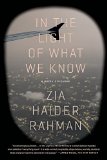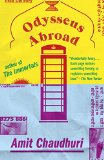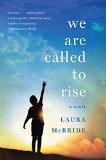Summary | Excerpt | Reviews | Beyond the book | Read-Alikes | Genres & Themes | Author Bio

The timing could not have been better. It is the fall of 2008; the world markets are just about to go into freefall, and the unnamed narrator of the sprawling novel, In the Light of What We Know, is getting ready to be "tied to the stake to satisfy the public's lust for blood." A derivatives trader and junior partner in his firm, he is only too relieved by the distraction that presents itself at his door - Zafar, a long-lost friend and fellow banker. From the very outset, it is apparent that Zafar is haunted. A human being fleeing ghosts while chasing shadows. This is how the narrator describes his friend.
Exactly what are these ghosts and shadows that preoccupy Zafar? Over the course of more than 400 pages, in what amounts to the metaphorical equivalent of one endless session on the couch, Zafar tries to exorcise the demons that have haunted him for so long. Arguably the biggest of these is class. To the outsider, Zafar and the narrator might appear to be cast from similar molds: both trace their origins to South Asia; both have had successful careers as bankers; both have been educated in the world's most elite institutions. Yet they couldn't be further apart. Much like the author, Zafar comes from rural Bangladesh; these humble origins funnel his family into poverty even after they move to England. On the other hand, the narrator is an American born in Princeton to a rich Pakistani family, with connections in the high places all over the world. Zafar feels this difference in class acutely, and not just in his dealings with the narrator, which might be blunted somewhat because they share the same race. He also feels it in his interactions with the English folks he meets both growing up in a working class London neighborhood and during his years at Oxford. What gave away his humble origins, Zafar remembers, was not his lack of specific brands of clothing or anything as simple as that:
They saw the way my eyes moved, my eyes watched, they saw through the scholarship boy who's always afraid he's going to trip up so he grabs every piece of information around him, every gesture, and reads every sign - because reading is what he does. They saw that none of it came naturally to me but was arranged by an effective mind, and because it was arranged and considered, measured and oblique, they saw the workings of design, the sweat of labor, and not the effortless charm of superior origins.
This fascination with class only intensifies when Zafar falls for the enchanting Emily Hampton-Wyvern. A pure English blue blood, Emily decides to do good in Afghanistan and gets drawn into the mega-complex of international NGOs all wanting a piece of the reconstruction pie. The most searing sections are the ones set in Afghanistan where it becomes clear that winning hearts and minds is an impossibly complicated task. Zafar is appalled by the incredible naivete of the Westerner trying to do the right thing in every wrong way possible: "They cannot abandon their imperialist mentality, every utterance steeped in orientalist bullshit," Zafar complains about the West. It is here in Afghanistan, that most of the real action in the book is set and where the book comes to an interesting - if slightly unsatisfying - conclusion. It should be made clear that despite the urgent tone of the sections set in Afghanistan all the "action" that unfolds is still in the past - viewed through Zafar's rearview mirror. It is interesting to note that while Zafar accuses the West of naivete with respect to their actions in Central Asia, he is not himself above such black-and-white leaps of faith. He is quick to bemoan class-obsessed England, yet hints the Harvard in that other Cambridge might be above all that. Here, people "showed no deference to breeding, manners or detachment." It was all only about ideas, he somewhat naively infers.
Debut novelist Zia Haider Rahman is a true polymath and the novel showcases his ample talent effectively. It tells both Zafar and the narrator's stories, eventually focusing on Zafar alone. But as Zafar ruminates about an endless series of topics - from salamanders to Poggendorff's illusion, to why flags sometimes fly at half-mast and more, one begins to wonder whether Rahman is trying a little too hard to make this a dazzling debut. Zafar's digressions might be the product of a tortured soul, but one wishes that the author didn't indulge his every aside. In this sense, Light occasionally comes across as too strained and so much in love with its own brilliance that it almost becomes a distraction. Because the reader sometimes feels manipulated, it's occasionally hard to fully engage with the story.
Despite these issues, there are many flashes of brilliance, of truly inspired writing that make the journey worth it. In the end, Rahman emerges as a writer to watch and, equally, an expert on the way our past binds us irrevocably to our futures. We bring our histories to our worlds and our work, Rahman observes. Ignore this, the novel seems to say, at your own peril. Where Light ultimately shines is in giving us a perspective from the other side of the fence. "Everything seen by the West is seen through the West," Rahman writes. Here, then, is a chance to move beyond that limited field of vision. The resultant clarity is illuminating in more ways than one.
![]() This review was originally published in The BookBrowse Review in May 2014, and has been updated for the
March 2015 edition.
Click here to go to this issue.
This review was originally published in The BookBrowse Review in May 2014, and has been updated for the
March 2015 edition.
Click here to go to this issue.

If you liked In the Light of What We Know, try these:

by Amit Chaudhuri
Published 2016
A beguiling new novel, at once wistful and ribald, about a day in the life of two Indian men in London, each coping in his own way with alienation, solitariness, and the very art of living.

by Laura McBride
Published 2015
Three lives are bound together by a split-second mistake, and a child's fate hangs in the balance.
What happens next will test—and restore—your faith in humanity.
Your guide toexceptional books
BookBrowse seeks out and recommends the best in contemporary fiction and nonfiction—books that not only engage and entertain but also deepen our understanding of ourselves and the world around us.